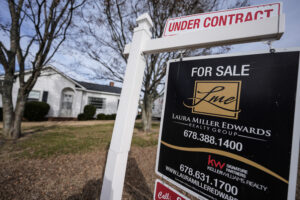There is no question, public policy can be used for good. But sometimes the unintended consequences of well-intentioned reforms can cause the most harm. Laws intended to help a group of people or create more equality can inadvertently hurt the same individuals whom decision makers intended to help. In some instances, the bad policies might even increase the inequality that the policy was intended to solve.
Understandably it is hard to oppose these policies, which is the problem. An example of this is a pilot program recently considered – and, for good reasons, dropped – by Fannie Mae, the government-sponsored organization that sells home loans on the secondary market.
Fannie Mae’s pilot would have waived title insurance on certain loans it purchased. It reasoned that waiving title insurance would lower the cost of buying a home and therefore increasing homeownership. As far as sales pitches are concerned, that sounds like a laudable goal and an important national priority.
However, the sales pitch ignored a few realities that unfortunately could cause many more problems for homebuyers – problems that can turn out to be a lot more expensive than the less than three quarters of a percentage point of the purchase price of the home that is the rough cost of title insurance.
First, title insurance provides important consumer protections. The buyer pays a small, one-time premium to guard against catastrophic events. Title Insurance protects homeowners from fraud, tax liens, and forgery. It also helps keep the title market itself clean, organized, and safe.
Eliminating title insurance might make purchasing a home marginally cheaper but it also increases risk.
Second, Fannie Mae has a history of making poor decisions in the name of expanding the housing market. It was just 15 years ago when Fannie Mae’s choices caused disruptions in the mortgage market that contributed to a global financial collapse.
The U.S. government stepped in and cleaned up Fannie Mae’s mess, but everyone wasn’t made whole. In fact, the government was only able to erect scaffolding around the crumbling economy, which allowed banks and large financial institutions to continue doing business. Many people lost almost everything: their homes, savings, and their faith in the economy.
And, according to the Furman Center the devastation disproportionately fell onto minority communities. According to its report: “Although the impact of America’s Great Recession was widespread, the collapse of the housing market and the subsequent rise in unemployment were highly structured by race. Foreclosures and job loss landed disproportionately on blacks and Latinos—even five years into the recovery, the black unemployment rate was more than twice the white rate and higher than the national rate at the peak of the recession. The distressingly large racial wealth gap also widened during this time, as did disparities in homeownership.”
Fannie Mae is still under government conservatorship because of the pain inflicted, and the poor decisions that led to the 2008 collapse – and rightfully so.
The Government Sponsored Enterprises are properly focused on increasing homeownership by lowering the barriers of entry. But policies aimed at making it easier to buy a home could also increase risks to the economy and to homebuyers. The focus is correct, but the execution is not.
We can’t let history repeat itself by allowing good intentions blind us to the fact that some solutions can also cause more problems than they might solve. We need policies that increase homeownership, encourage wealth creation for those that need it the most, and promote economic stability. We don’t need another reform that claims to do good things but increases risk on vulnerable homebuyers and taxpayers.
Thankfully, Fannie has withdrawn its pilot program idea. That was a good decision. We should stop watching out for good sounding policies that will lead to bad outcomes. We know how that ends.
Jehmu Greene is a television commentator, social justice advocate, and Co-founder & CEO of We Defend Truth.



